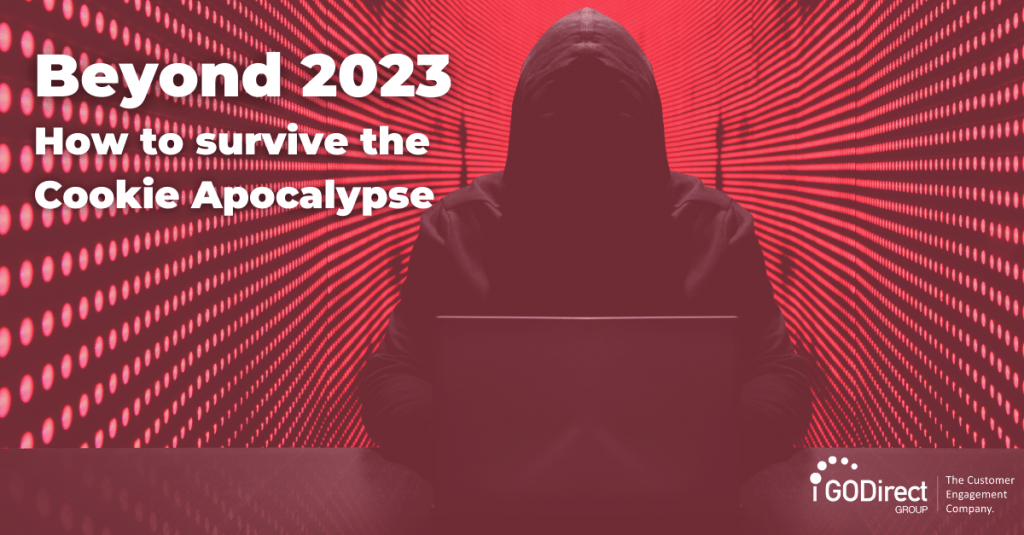
We’ve all seen it. We visit a website on an impulse, browse their products, and then promptly forget about it. At least we would, but afterward, it seems like every website suddenly knows we’re in the market for sports gear, summer fashions, or engagement rings. This is just the cost of entry to a hyper-connected online world – hyper-personalised ads are here to stay, right? Wrong. Cookies are disappearing from the internet and as they do so marketers will need to adjust their targeting strategies accordingly.
Initially conceived as a mechanism to improve website usage, such as remembering passwords, cookie use has long since broadened. As web users we have made an unspoken pact with publishers – we consume their content for free, and in exchange, they use our data to monetise their content by selling it to third-party advertisers.
What’s changing
It’s these third-party cookies that will be gone in late 2023 when Google Chrome joins Firefox and Safari in removing support. While Apple has already required iPhone users to opt-in to third-party tracking cookies on iOS devices with App Tracking Transparency (ATT), Google is opting for its own Federal Learning of Cohorts (FLoC).
Data surveillance backlash
These changes follow a growing backlash to digital surveillance driven by the Cambridge Analytics scandal, GDPR, and CCPA laws. In response, Apple has sought to highlight its privacy credentials with a focus on hardware sales reducing its motivation to capture users’ details for advertising. Meanwhile, Google’s motivation is to assuage
DAVID TEMKIN
DIRECTOR OF PRODUCT MANAGEMENT, ADS PRIVACY AND TRUST
What does this mean for marketers? It means the cookie apocalypse is coming! Marketers need to reset their thinking for what this new cookie-less marketing looks like, and how to adapt to content-based marketing.
Marketing with third-party cookies
Currently, advertisers can access incredibly granular targeting options. This can include what keywords a user has searched, what they’re in-market to buy currently, their age/gender, whether they’re in a relationship, how old their kids are, their income, and much more. With access to this data advertisers have been able to pinpoint the exact messages, behaviours, demographics, and life stage that correlate with conversions in their business.
- Ad retargeting – servings ads based on previously viewed content
- Behavioural advertising – targeting individuals based on their activity across multiple websites
Consent-based marketing
After 2023, advertisers won’t necessarily know whether we’ve viewed their ads. Whereas before they were able to retarget ads to, for example, offer discounts after a certain time period, now they may be unable to connect ad views with a given user. This could mean that ads and conversions aren’t linked, that converted customers continue to see acquisition ads, and that more calibrated messaging is weakened.
Further, the information advertisers know about their audience is diminished. Those that have relied on third-party cookies will have fewer targeting options – a shift to contextual over demographic – and will find it more difficult to convert as a result.
- Focus on first-party data – growing investment in capturing and enriching customer data
- Flight to walled gardens – major social media, AdTech platforms, and publisher power will increase as the main conduits for first-party data
- Universal IDs – other AdTech and MarTech platforms are launching their own solutions such as ID5 and Unified ID with the goal of matching and unmasking site visitor
- Traditional marketing – reconnecting with customers via more traditional channels such as direct mail
Cookie-less marketing beyond 2023
When the cookie crumbles marketers will need to be ready. To prepare now, their key focus needs to be on capturing and enriching their customer information so they can continue to “own” their audience to continue targeting them via eDMs, direct mail, SMS, outbound calls, and other 1:1, or 1:many relationships.
At iGoDirect Group, we’re ready to bridge this gap. Here we’re invested in marketing automation technology and account-based marketing for our own business and continue to offer data enrichment promotions and services for clients.
All of our technology is based on consent-based engagement with customers and clients. Our True Rewards platform distributes digital gift cards at scale, powering cashback promotions and sales incentives to capture more customer data in a give-to-get relationship. Further, our consumer and B2B promotions at Rewards Come True encourage clients and customers alike to exchange their data for opportunities to win. Separately, we engage with consumers and clients to capture their feedback in custom surveys that provide opted-in insights in everything from buying behaviour, to branding impressions, and product feedback.
Ensure you’re ready for the switch – kickstart a campaign to capture more first-party customer data today with iGoDirect Group.
